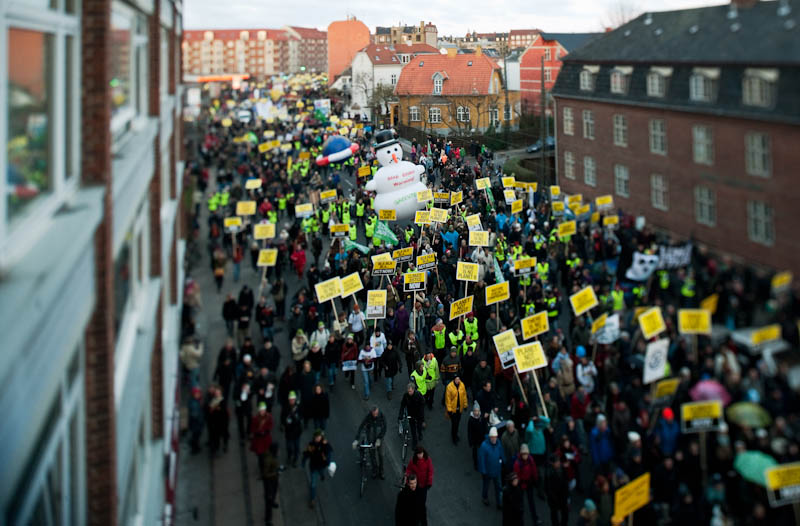At the second last day of scheduled talks in Doha emotions were starting to run high. During a plenary meeting of the Ad Hoc Working Group on Further Commitments for Annex I Parties under the Kyoto Protocol (AWG-KP), a delegate of the Philippines delivered an impassioned speech about the devastation caused in his country this week by Typhoon Bopha, and the need for progress on mitigation, to prevent these sorts of events from becoming commonplace in the future. His remarks were met with applause and an outpouring of support.
Comments made later in the day by Lord Monckton of Brenchley, a noted climate sceptic, were received very differently. After taking the seat of Burma (Myanmar), Lord Monckton made an intervention and called for a review of the science regarding climate change before any further action was taken. He was booed by the crowd gathered at the meeting, particularly the large number of non-governmental organization (NGO) attendees, and then escorted out by UN guards. Reportedly he has since been “de-badged,” meaning that he has been stripped of his accreditation to attend the conference, for impersonating a party and violating the UN Code of Conduct.
Lord Monckton’s remarks were made during a “stocktaking” by the President of the 18th Conference of the Parties (COP 18) to the UNFCCC. The President reported that progress was being made in each work-stream of the talks, and that it was still expected that the conference would conclude in the evening on Friday, December 7. In spite of this claim by the President, rumour has it that the security guards at the Qatar National Convention Centre, the host venue, have been asked to stay on duty until Sunday.
The closing plenary meeting of the AWG-KP was also held on Thursday. While many of the issues relating to a second commitment period for the Kyoto Protocol remain unresolved, the AWG-KP has issued a draft text, which sets out the different options and brackets those provisions which are yet to be decided upon. The real business now is taking place at the political level in closed meetings and bilateral talks. Ministers and Heads of Delegation are trying to reach a compromise so that the 8th Conference of the Parties serving as the Meeting of the Parties to the Kyoto Protocol (CMP 8) can adopt a decision amending the Protocol to create a second commitment period. Decisions of the CMP or the COP typically have to be reached by consensus, although amendments can be adopted by a three-fourths majority. The feeling of attendees and delegates is that an agreement will be reached in the CMP, finalizing the necessary details of the second commitment period.
There are still difficulties reaching agreement in the Ad Hoc Working Group on Long-term Cooperative Action under the Convention (AWG-LCA), with an open-ended Ministerial roundtable on finance issues being held to try and make progress in that area. During the stocktaking session, the G77 requested that the AWG-LCA conclude before work in the Ad Hoc Working Group on the Durban Platform for Enhanced Action (ADP) continued, as many of their member nations did not have the resources to negotiate in the two forums simultaneously. Although the G77 and the Least Developed Countries (LDC) groups include some of the nations who are most vulnerable to climatic changes, the ability of many of these nations to participate effectively in negotiations is limited by having smaller and less well-resourced delegations than their developed country counterparts.
CCCL works with the Legal Response Initiative (LRI), an organization striving to enable equitable participation in international climate change negotiations by providing access to free, high-quality legal advice to LDC delegations. The LRI is not a political organization, and offers only clear and objective legal advice. More information about the LRI, and how to become one of its volunteer legal advisors, is available here.


